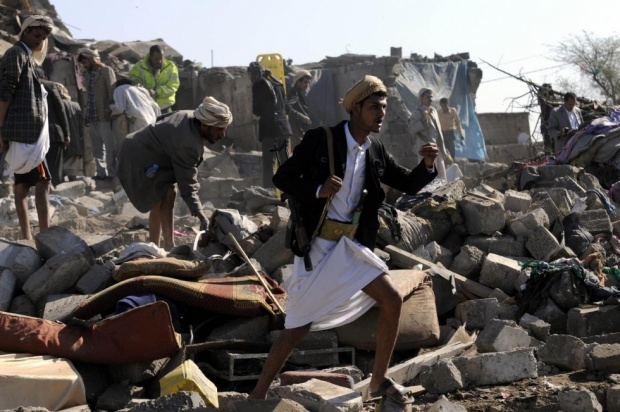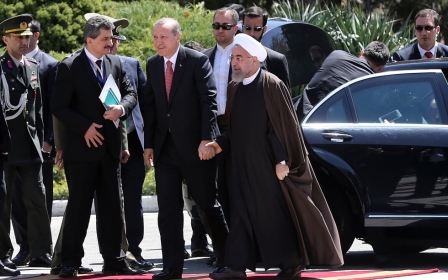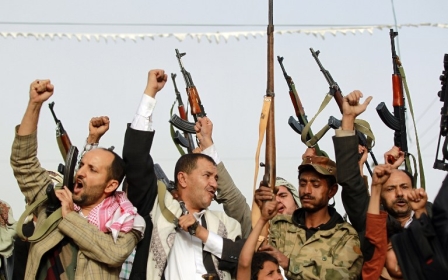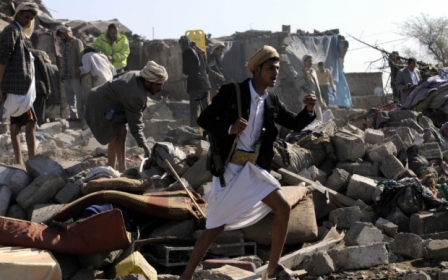US speeds up arms shipments to Gulf coalition on Yemen

The United States has stepped up weapons deliveries in support of a Saudi-led coalition resisting the advance of Shiite rebels in Yemen, a senior US official said Tuesday.
"Saudi Arabia is sending a strong message to the Houthis and their allies that they cannot overrun Yemen by force," Deputy Secretary of State Antony Blinken told reporters in the Saudi capital.
"In support of that effort we have expedited weapons deliveries," he said after talks with Defence Minister Mohammed bin Salman and other Saudi officials.
"We've increased our intelligence sharing, and we've established a joint coordination planning cell in the Saudi operations centre."
And Pentagon spokesman Colonel Steve Warren said in Washington that the US would be accelerating pre-existing munitions orders for its allies.
"It's a combination of pre-existing orders made by our partner nations and some new requirements as they expend munitions," Warren said, according to Reuters.
The Gulf coalition on 26 March began airstrikes in Yemen, aiming at defeating the Houthi rebels who seized power in the capital Sanaa in February, and who Riyadh feared would take over the entire country and shift it into the orbit of Shiite Iran, Sunni Saudi Arabia's regional rival.
The Houthis, allied with army units loyal to ex-president Ali Abdullah Saleh, have been fighting forces loyal to President Abd Rabbuh Mansour Hadi, who fled to the Saudi capital Riyadh late last month from the port city of Aden.
Blinken said Hadi's opponents "have brought Yemen to the brink of economic collapse" and demolished government institutions in a country that had been "on a very positive path to an inclusive future".
Al-Qaeda and other groups were seeking to exploit the resulting instability, he said.
"These security threats extend beyond Yemen to the region and indeed to the entire world."
Blinken, who is on a Middle East tour, met with Hadi during his Riyadh stop.
The US official said it "is more important than ever" that the US and the Gulf Cooperation Council states, which include Saudi Arabia, coordinate closely and press all parties especially the Houthis and their allies "to commit to a consensus political solution".
Blinken also offered reassurances that a framework agreement reached last week to curb Iran's nuclear drive would make the Gulf safer.
Iran deal 'will make Gulf safer'
"Iran without a nuclear weapon will be less emboldened to take destabilising activities in the region.
"We will reduce the pressure for a regional arms race ... this agreement is a critical step in ensuring greater security in the Gulf," he said.
The deal marked a major breakthrough in a 12-year standoff between Iran and the West, which has long feared Tehran wants to build an atomic bomb, despite Iran's denials.
Saudi Arabia worries that if too much of Iran's nuclear programme is left intact it will still have the ability to obtain an atomic bomb, and there have been concerns that Riyadh could seek its own nuclear capability.
Also on Tuesday, Jordan circulated a UN resolution aimed at ending the Yemen conflict, the Associated Press reported.
A UN diplomat said the draft resolution would condemn actions taken by the Houthis and call for an arms embargo on targeted individuals.
Additionally, the resolution calls for a political solution to the conflict and the delivery of humanitarian aid, said the diplomat, who spoke to AP on the condition of anonymity.
Last week, Russia called for the meeting of the 15-member Security Council amid growing alarm over the rising civilian death toll in Yemen.
The UN children's agency has said at least 62 children have been killed and that some 30 were injured last week in Yemen.
Middle East Eye propose une couverture et une analyse indépendantes et incomparables du Moyen-Orient, de l’Afrique du Nord et d’autres régions du monde. Pour en savoir plus sur la reprise de ce contenu et les frais qui s’appliquent, veuillez remplir ce formulaire [en anglais]. Pour en savoir plus sur MEE, cliquez ici [en anglais].




